#richard sieburth
Text
Through the veils of her flesh, I can sense in her something that is not of this world.
— Gérard de Nerval, Selected Writings, transl by Richard Sieburth, (1999)
44 notes
·
View notes
Photo
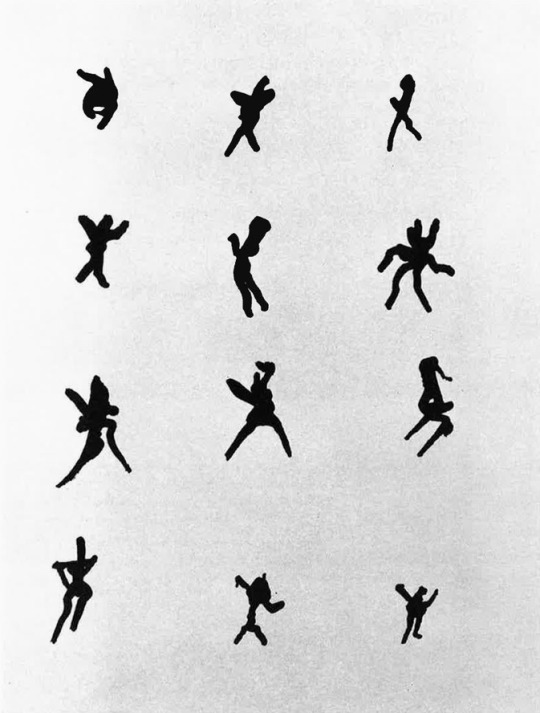
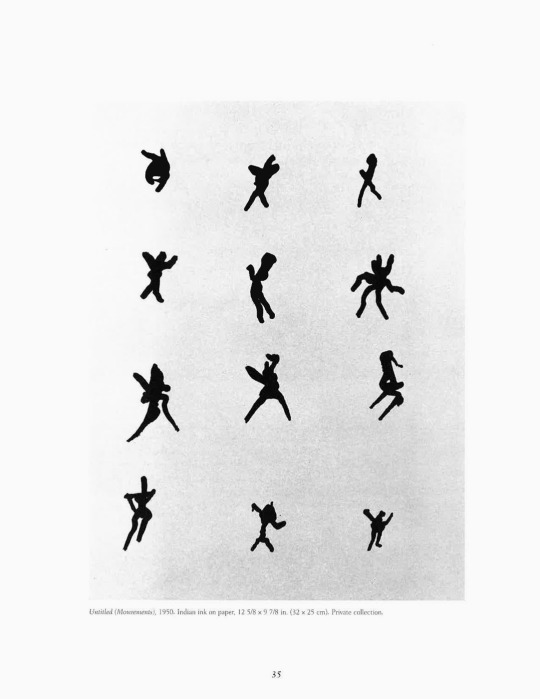
Henri Michaux, (1972), Emergences-Résurgences, Drawing Papers, Volume 14, Translated by Richard Sieburth, Edited by Catherine de Zegher, Essays by John Ashbury, Raymond Bellour, Laurent Jenny, Florian Rodari, and Richard Sieburth, The Drawing Center, Nedw York, NY / Skira, Milano, 2000, p. 35 (issuu here)
#cartography#art#drawing#visual writing#calligraphy#catalogue#catalog#henri michaux#richard sieburth#catherine de zegher#john ashbury#raymond bellour#laurent jenny#florian rodari#the drawing center#skira#1970s#2000s
115 notes
·
View notes
Text
The first English collection of the late poetry and prose fragments of literary icon Charles Baudelaire
The first English collection of the late poetry and prose fragments of literary icon Charles Baudelaire
Late Fragments Flares, My Heart Laid Bare, Prose Poems, Belgium Disrobed by Charles Baudelaire as Translated by Richard Sieburth
While not as well‑known as his other works, Charles Baudelaire’s late poems, drafts of poems, and prose fragments are texts indispensable to the history of modern poetics.
This volume brings together Baudelaire’s late fragmentary writings, aphoristic in form and…

View On WordPress
1 note
·
View note
Text
Francis Abernathy: fake pince-nez
I was wondering where Francis ‘borrowed’ this accessory, so let there be some observations.
First of all, there’s a sassy definition of a typical dandy by Paul de Saint-Victor (La Presse, 21 August 1859):
'Black Prince of Elegance, the demigod of boredom who looked at the world with an eye as glassy as his pince-nez, suffering because his disarranged cravat had a crease, like ancient Sybarite who suffered because his rose was crushed.'
Then I thought that red hair combined with pince-nez reminds of Ezra Pound, known for his dandyish style and some other unpleasant things.
[Considering that Henry Winter could be read as a projection of T. S. Eliot, I think it's logical to compare Francis to Eliot's friend Pound, who edited The Waste Land, btw.]
Pince-nez also wore Mark Twain, another elegant redhead. Speaking of Twain, he left a description of one notable encounter in his Autobiography (vol. 2, 1924):
'Last night I was at a large dinner party at Norman Hapgood's palace uptown, and a very long and very slender gentleman was introduced to me — a gentleman with a fine, alert, and intellectual face, with a becoming gold pince-nez on his nose and clothed in an evening costume which was perfect from the broad spread of immaculate bosom to the rosetted slippers on his feet. His gait, his bows, and his intonations were those of an English gentleman, and I took him for an earl.'
Dapper-looking, tall, thin young gentleman in pince-nez, giving an impression of English aristocracy at uptown dinner parties. Doesn’t it sound like Francis?
Another possible source is 'The Adventure of the Golden Pince-Nez', one of Sherlock Holmes short stories. This pince-nez belongs to a refined and well-dressed lady, who committed an accidental murder, and then committed a suicide.
Eventually, when I was reading a review on Baudelaire’s last oeuvre, among his notes about Belgium I discovered a curious fact: Baudelaire complained that Belgians sold pince-nez with plain glass as a fashion accessory.
So I put my nose into that piece of prejudiced decadent writing:
'The pince-nez, with its cord, perched on the nose. A multitude of vitreous eyes, even among the officers. An optician told me that the majority of pince-nez that sells are clear glass. Thus this national pince-nez craze is nothing more than a pathetic effort to appear elegant and yet one more sign of the spirit of imitation and conformity.'
Late Fragments: Flares, My Heart Laid Bare, Prose Poems, Belgium Disrobed, trans. by Richard Sieburth (p. 301)
Francis bought his phony pince-nez in Belgium. That's it.
26 notes
·
View notes
Photo
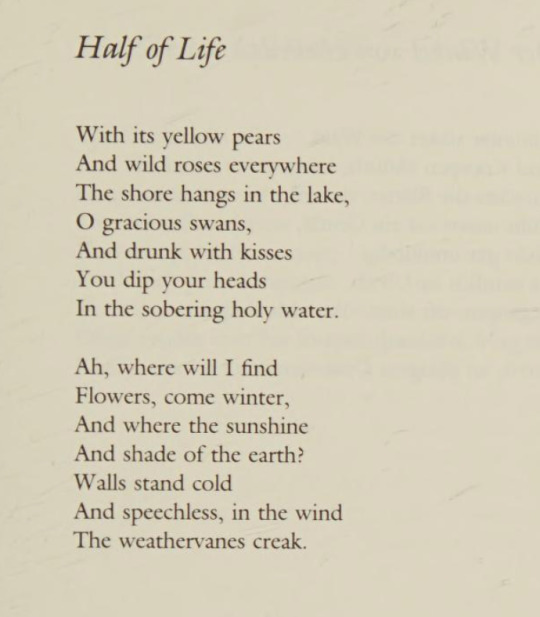
Friedrich Hölderlin, from Hymns and Fragments (translated by Richard Sieburth)
32 notes
·
View notes
Text
For the powers of man
Are many, by his art
Flood, stone and fire are mastered,
Nor, high-minded, does he shy from
The sword, yet when faced
With the gods, the strong are laid low,
Almost like the deer
Friedrich Hölderlin, 'Am Quell der Donau' '(At the Source of the Danube') [Trans. Richard Sieburth]
27 notes
·
View notes
Text
“All knowledge creates fresh ignorance.
All consciousness, a new unconsciousness.
Every new contribution creates a new nothingness.”
— Henri Michaux
from: A Certain Plume (tr. Richard Sieburth)
8 notes
·
View notes
Text
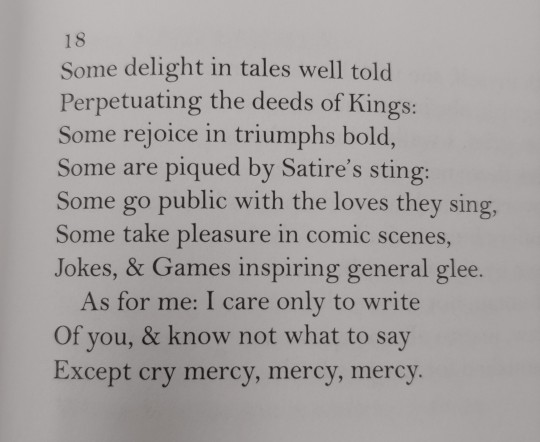
from délie by maurice scève, trans. richard sieburth
9 notes
·
View notes
Text
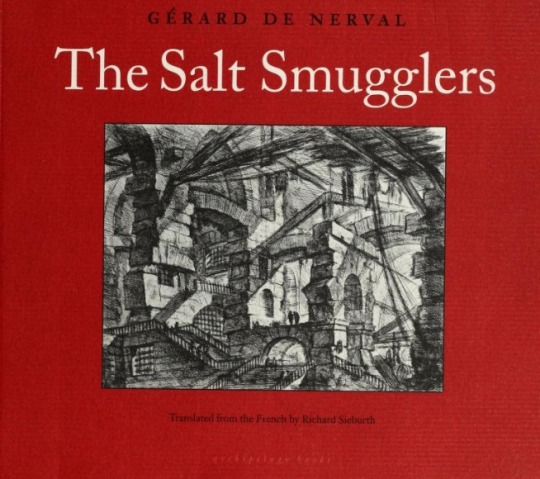
The notorious gabelle, or salt tax, one of the most despised revenue sources of the ancien régime, required every person over the age of eight to purchase a minimum amount of salt (about fifteen pounds) each year at elevated prices set by the Crown’s monopoly and its corrupt tax farmers. Faux saunage (or salt fraud) was rampant in the provinces where the tax was highest, and in 1675, some seven thousand Breton peasants rose up against the gabelle, provoking a brutal repression by royal troops and an even more drastic revision of the salt tax laws by Colbert.
Given these circumstances, the salt smugglers or clandestine salt makers known as faux sauniers stood to make considerable profit on their contraband and, like the rum-runners of the Prohibition Era, were often seen as romantic outlaws in league with the local peasantry against the distant and ever more oppressive nation-state. By the late eighteenth century, more than three thousand French men, women, and children were sentenced to prison or death every year for crimes against the gabelle.
After the French Revolution, the new National Assembly abolished the salt tax in early 1790 and amnestied all those accused of faux saunage. Reestablished by Napoléon in 1806 to defray the costs of his foreign wars, it remained in effect until the revolution of 1848, when, in one of its very first February decrees (laden with symbolism), the new provisional government eliminated the salt tax altogether — only to see it reintroduced in December later that same year.
— Richard Sieburth, Translator’s Postscript to Gérard de Nerval’s The Salt Smugglers
19 notes
·
View notes
Text
Honour the spirit active in every creature: each flower is a soul that opens on to Nature; each metal harbours a mystery of love.
— Gérard de Nerval, Selected Writings, transl by Richard Sieburth, (1999)
19 notes
·
View notes
Photo
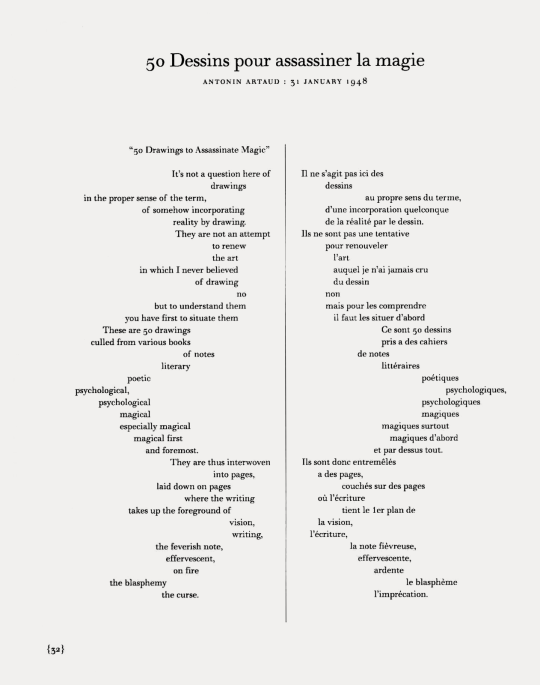

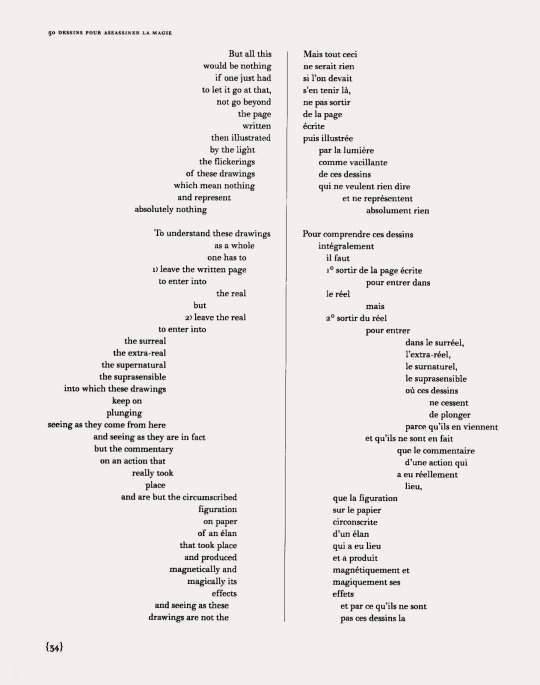



Antonin Artaud, 50 dessins pour assassiner la magie, January 31, 1948 [translated by Richard Sieburth]; in Antonin Artaud. Works on Paper, Edited by Margit Rowell, The Museum of Modern Art, New York, NY, 1996, pp. 32-37 (pdf here)
#graphic design#art#poetry#exhibition#catalogue#catalog#antonin artaud#richard sieburth#margit rowell#the museum of modern art#1940s#1990s
45 notes
·
View notes
Text
'But poets establish what remains.'
(Richard Sieburth)
'But the poets found what lasts.'
(David Constantine)
'Was bleibet aber, stiften die Dichter'
--Friedrich Hölderlin, 'Andenken' / 'Remembrance'
1 note
·
View note
Text
“Kiss me, rekiss me & kiss me again.”


We’re counting down the days until Saint Valentine’s Day with poems from the NYRB/Poets series (and Classics series).
First up is the 16th-century poet Louise Labé’s Sonnet 18, as translated by Richard Sieburth and collected in Love Sonnets & Elegies
28 notes
·
View notes
Text



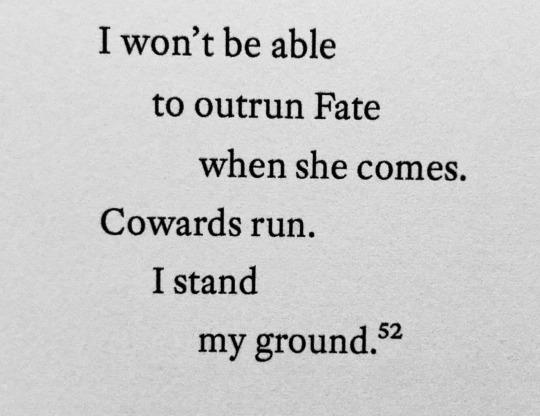

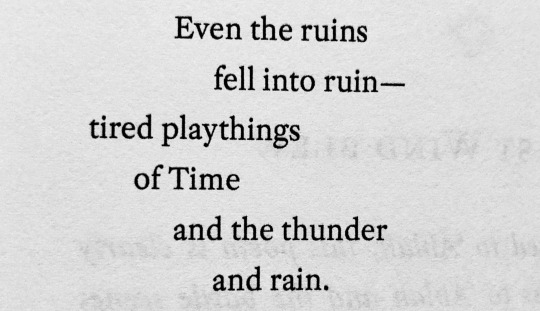




some of my favourite snippets from war songs by ‘antarah ibn shaddād (trans. james e. montgomery & richard sieburth)
#ellis reads#antarah ibn shaddad#arabic poetry#quotes#literature#i really liked their rendering in english
21 notes
·
View notes
Link
This appears to be the full collection of Gerard de Nerval’s Les Faux Saulniers (the Salt Smugglers) , in French, for free! It’s about censorship, and the reality and unreality of history and fiction, and it is, especially, about trying to find that one book you need for your research project. It’s a romp.
(If you want an English version/ more context, I highly recommend Richard Sieburth’s translation (it is also the only translation, but it’s a good one with lots of footnotes!)
13 notes
·
View notes
Photo

georg büchner, lenz (trans. richard sieburth)
6 notes
·
View notes